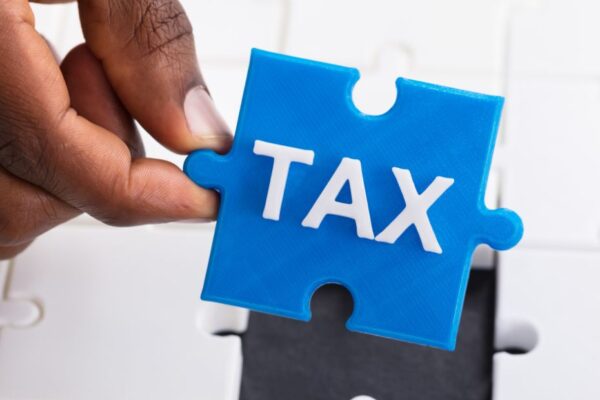It may not seem like a big deal to forget to make a credit card payment while cleaning up your finances, but even if you’re only one day late, it can cause problems. You are more likely to get fined, have fees added to your account, have your interest rate go up, be bothered by debt collectors, and even get in trouble with the law if you don’t pay on time.
You should call your creditor or get professional help right away if you can’t pay your credit card bills. This will keep you from having to deal with the problems below. Let’s see “What Happens If You Stop Paying Your Credit Card Bills”.
What Could Happen If You Don’t Pay Your Credit Card?
1. You Will Be Charged Late Fees
If you don’t pay your credit card bill on time, the company that gave you the card may charge you a late payment fee.
The fee amount can change based on your card and value. However, the government Credit CARD Act of 2009 puts a cap on the fee. Late payment fees can be as high as $29 for the first missed payment and $40 for each one after that.
If you’re taking advantage of a promotional 0% APR (annual percentage rate), a late payment could end the promotion early. This means that you’ll have to pay interest fees on your card balance going forward, along with any costs that are added to your balance.
2. Your Interest Rate Could Go Up
Stopping to pay your credit card bill will be against the card’s terms of service. This could lead to a penalty APR, which would make your interest rates go through the roof. A penalty APR is usually around 29.99%.
If the interest rate on your credit card goes up, you will have to pay more on your amount. It will get even harder for you to pay back your loan in the end. The interest rate will go down faster if you put more of each payment toward it, and you’ll pay more interest in the long run.
3. You’ll Be Negatively Reported To Credit Bureaus
The company that gave you the credit will tell the credit bureaus about the late payments, which will hurt your credit score. This will hurt your credit score a lot, which will make it harder for you to get loans and other types of credit. If your credit card had a special APR, you might not be able to get it back after one late payment.
4. An Account in Collections
What happens if you don’t pay your credit card bill on time for 180 days? The company can close your account. This means the lender stops letting you make purchases with that account and counts your debt as a loss. You still need to pay the amount that’s due, though.
If your issuer sells your debt to a third-party debt collection during this time, you’ll have to keep paying that company. Your credit is likely to go down once your bill is in their hands. It is common for a credit card account that is in collections to stay on your credit report for seven years after it is past due.
5. Creditors File a Lawsuit
If you don’t pay a collection firm, they can sue you to get their money back. It can be anywhere from 2 to 10 years after the event in which you want to file a lawsuit in each state. The law is based on the state where you live, not the lender’s main office. When you miss your first payment, the clock starts ticking. It can be reset by calling the bill collector, though the rules vary from state to state.
A case can lead to a lien being put on your property, having your wages taken away, and other things. However, you cannot go to jail for not paying a bill. The debt collection can still try to get the money, but they can’t file a lawsuit after the deadline has passed.
What If You Can’t Pay Your Credit Card For Several Months?
A credit card company might not report accounts that are just a few days late as past due to some people. You might still get a late payment fee, though. And if you don’t pay on time for 30 days, the late payment may be sent to credit companies.
If you haven’t made a payment in 60 days, the lender may charge you a penalty annual percentage rate (APR). This depends on the lender and the rules of your account.
Bottom Lines
A simple answer to the question “What Happens If You Stop Paying Your Credit Card Bills” is you might have to pay a lot if you stop paying your credit card bills. It will take time for you to pay off your credit card debt. It can take a long time to raise your credit score but not as long to lower it.
To get out of credit card debt for good, you should make all of your payments on time, cut back on your spending, and make sure your debt stays low going forward. People whose credit has been harmed should not freak out, we tell them. There is always a way to get better.
You don’t have to handle this tough situation by yourself. MDR Financial Services can help you if your earnings aren’t stable. A certified credit expert knows how to help you deal with your credit card debt and can help you make a plan.
FAQs
Can I go to jail if I don’t pay my credit card debt?
NO. If you don’t pay your credit card bill, you can’t go to jail. It is also against the law for debt collectors or creditors to use threats of arrest or any other form of criminal action to get you to pay.
How can I legally stop paying for my credit cards?
Should you want to officially stop paying your credit cards, you could use debt settlement programs or file for bankruptcy. Some of these choices can help you get some much-needed short-term money comfort. Still, there are some problems to think about, like the chance of getting sued or having to sell possessions.
What happens if I don’t pay my credit card and leave the country?
The agreement between you and your credit card company is still valid even though you’re not in the country. There is no ending to your bills; you still have to pay them back. If your move abroad is real, though, just make sure to talk to your credit card company and bill collectors.











